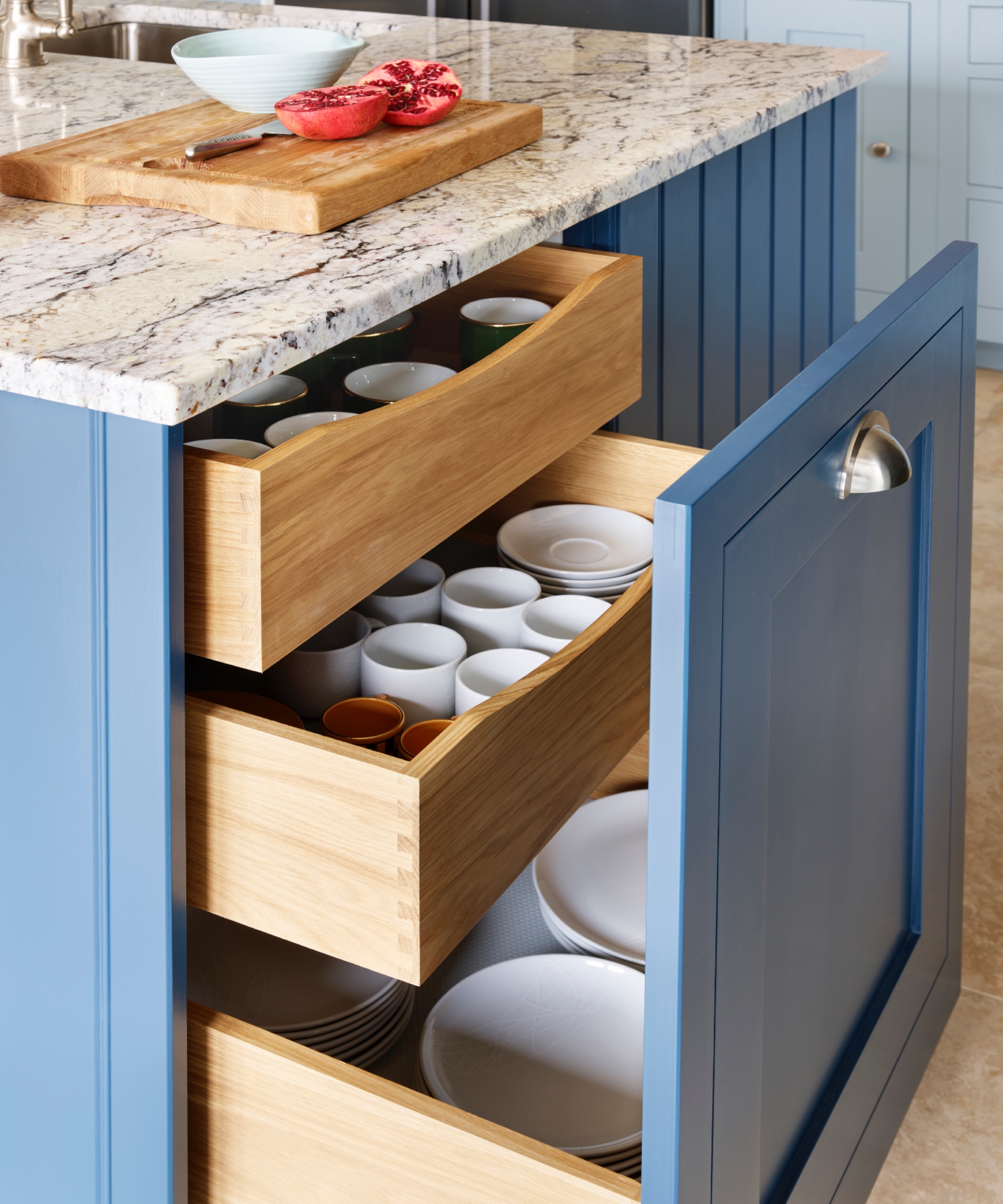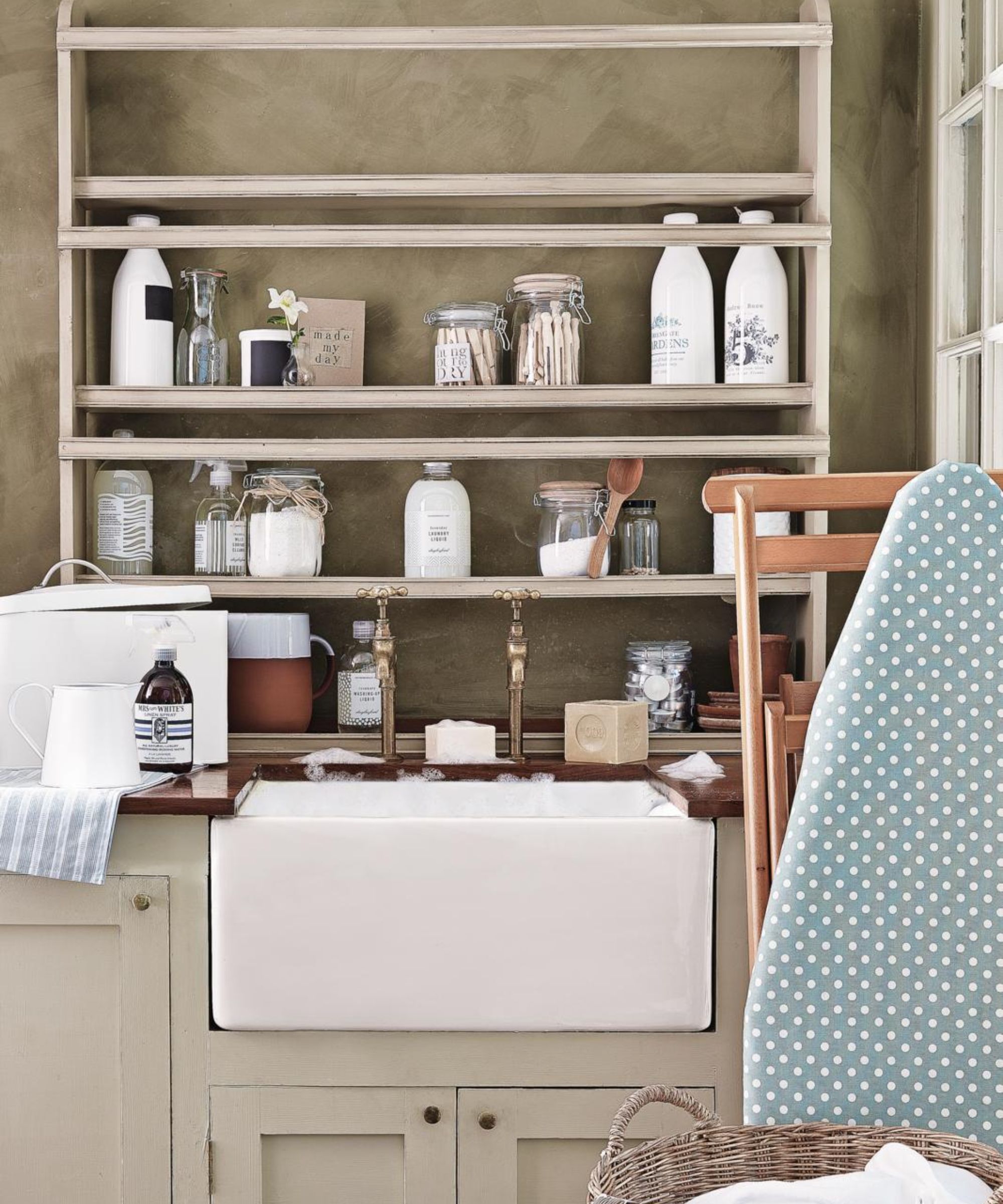
There are a number of reasons why kitchen cupboards can develop a musty smell. Uncleanliness, poorly understood food storage, and lack of maintenance lead to mold production, among others.
While a smelly kitchen carries concerns, the cause of musty smells around the house can normally be rectified with relative ease. In some cases, however, musty smells could be an indicator of something more concerning, like mold, dampness, or subsidence.
Below, our experts highlight five probable causes why your kitchen cupboards might smell musty and some solutions to make your kitchen smell fresh again.
Reasons why your kitchen cupboards smell musty
Maintaining certain cleaning habits can minimize the production of mold and mildew.
1. Poor ventilation

Cupboards, especially those situated in environments with high humidity levels or insufficient ventilation, can become susceptible to the accumulation of trapped moisture.
‘This is often exacerbated by factors like proximity to cooking areas and lack of proper air circulation,’ says Angela Rubin, owner of Hellamaid. ‘As moisture lingers within confined spaces, it not only fosters a breeding ground for mold and mildew but also contributes to the development of a pervasive musty odor.’
Proper kitchen ventilation is key to mitigating a buildup of moisture and preventing musty odors from developing in your cupboards. Installing a quality kitchen extractor hood, strategically placing windows for cross-ventilation, or investing in the best dehumidifiers are all great ways to ventilate this space.
2. Leaky pipes or appliances
Water leaks from pipes or kitchen appliances are another contributor to musty odors. Extend your examination to kitchen appliances like dishwashers and refrigerators, checking for leaks and inspecting water supply lines and hoses for wear or damage.
If leaks are detected, promptly repair or replace damaged pipes and connections. Properly maintaining your kitchen appliances and fixing leaks immediately will help to reduce the risk of musty smells in your cupboards.
3. Food spills and residue

According to cleaning specialist Shayne Jeramos, food spills and residue may also contribute to musty odors. Regular cleaning, with simple household cleaners or homemade kitchen cleaners, is essential. Time to roll up your sleeves and give those cupboards a good cleaning. Mix white vinegar and water, or grab a mild detergent to disinfect the inside of your cupboards. Take everything out and give it a good wipe-down for added peace of mind.
Investing in airtight containers, such as the Rubbermaid Brilliance BPA Free Food Storage Containers from Amazon, will help contain any food spillages whilst also keeping your food fresh and more organized. Storing food improperly can unintentionally introduce musty smells too. Leftover debris and aging ingredients may emit odors as they spoil in confinement. When replenishing cabinets, focus on proper storage and avoid neglecting contents past their prime.
4. Mold and mildew growth
Mold and mildew are one of the main causes of musty odors in cupboards, and it can sometimes be hard to notice hidden moldy spots in the kitchen. Moisture is the primary culprit in many cases. Conditions like humidity, cooking residue, or lingering water damage provide the perfect breeding ground for mold and mildew growth inside cabinetry.
To effectively address this concern, it's crucial to identify and rectify the sources of moisture promptly. Additionally, implementing preventive measures such as moisture-resistant materials and adequate ventilation can curb the likelihood of recurrent mold growth.
5. Infrequent cleaning

Neglecting to clean a kitchen regularly can contribute to musty odors as dust and debris accumulate. Cleaning specialist Janille Mangat suggests that establishing a cleaning routine is key to banishing bad kitchen smells.
‘When washing your kitchen cabinets and cupboards, pay particular attention to corners, edges, and undersides of shelves,' she explains. Allow all surfaces to dry completely before returning items to the cupboards, preventing the accumulation of dust, spills, and food particles.’
Regular cleaning sessions not only prevent the decomposition of food residues but also act as a proactive measure against mold and bacterial buildup, maintaining a fresh and sanitary cupboard environment.
A combination of proactive measures and targeted solutions can effectively eliminate musty smells in kitchen cupboards. By understanding the causes and implementing these easy steps, you can maintain a fresh and odor-free environment within your cabinets, preserving their longevity and aesthetic appeal.







